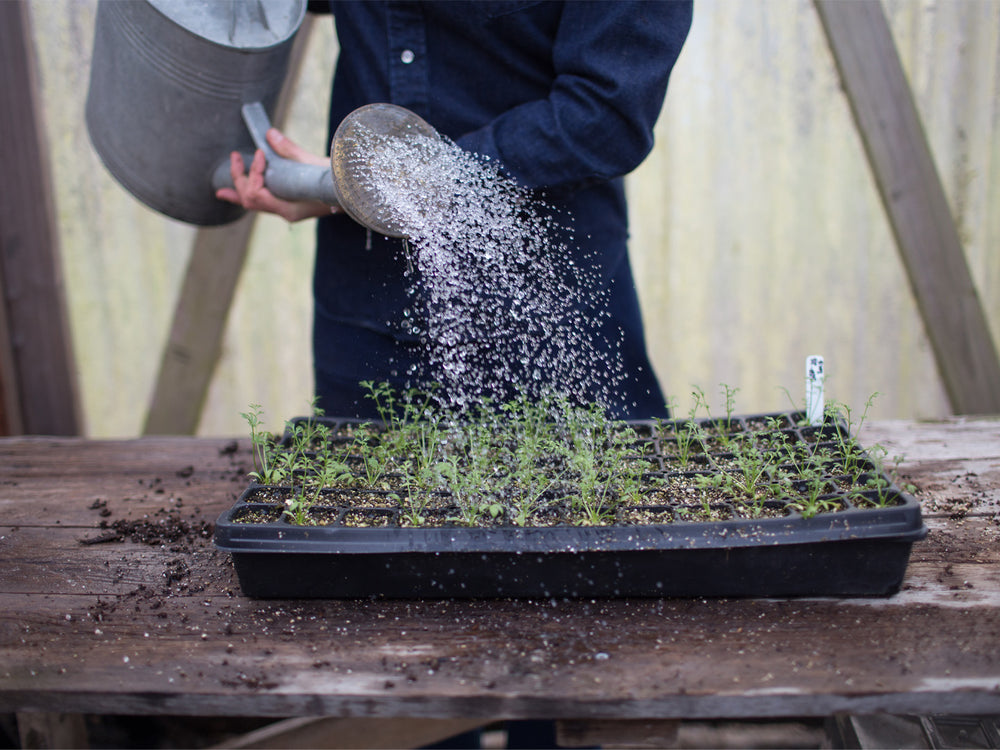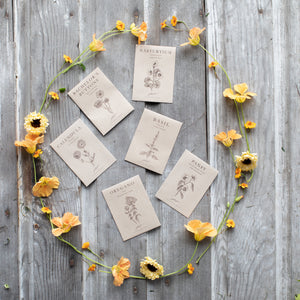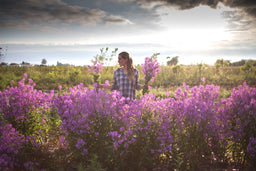Foxglove ‘Café Crème’
Digitalis lanata
Description
This pollinator-friendly plant is smothered in creamy, hoodlike blooms brushed with golden mustard-yellow and intricately detailed with chocolate veining. Dark, upright stems look as if they are covered in miniature lady slipper orchids—the effect is absolutely mesmerizing. A long-lasting cut that’s perfect for bouquets. Flowers later than most purpurea varieties.
Please note: All parts of foxglove are poisonous, including the seeds. Use caution around children and pets.
Details
Height: 24 to 36 in
Site: suitable for some degree of shade
Days to maturity: 330 to 360 days
Plant spacing: 9 to 12 in
Pinch: not necessary
Seed Sowing & Growing Notes
Sow seed from late spring to early summer and plant seedlings in the garden at least 6 weeks before your first autumn frost. Plants will overwinter in the garden and bloom the following spring. Seeds are very small; bottom-watering is recommended until plants emerge.
Harvesting/Vase Life
Details
Description
This pollinator-friendly plant is smothered in creamy, hoodlike blooms brushed with golden mustard-yellow and intricately detailed with chocolate veining. Dark, upright stems look as if they are covered in miniature lady slipper orchids—the effect is absolutely mesmerizing. A long-lasting cut that’s perfect for bouquets. Flowers later than most purpurea varieties.
Please note: All parts of foxglove are poisonous, including the seeds. Use caution around children and pets.
Details
Height: 24 to 36 in
Site: suitable for some degree of shade
Days to maturity: 330 to 360 days
Plant spacing: 9 to 12 in
Pinch: not necessary
Seed Sowing & Growing Notes
Sow seed from late spring to early summer and plant seedlings in the garden at least 6 weeks before your first autumn frost. Plants will overwinter in the garden and bloom the following spring. Seeds are very small; bottom-watering is recommended until plants emerge.
Harvesting/Vase Life
Sources
How to Grow

Winter Mini Course: Seed-Starting 101
Learn how to start flowers from seed in this three-part video series
In this free video series, you’ll learn everything you need to know to successfully start flowers from seed, including all of the necessary supplies, step-by-step instructions, special tips and tricks, and how to create a simple indoor seed-starting area.













